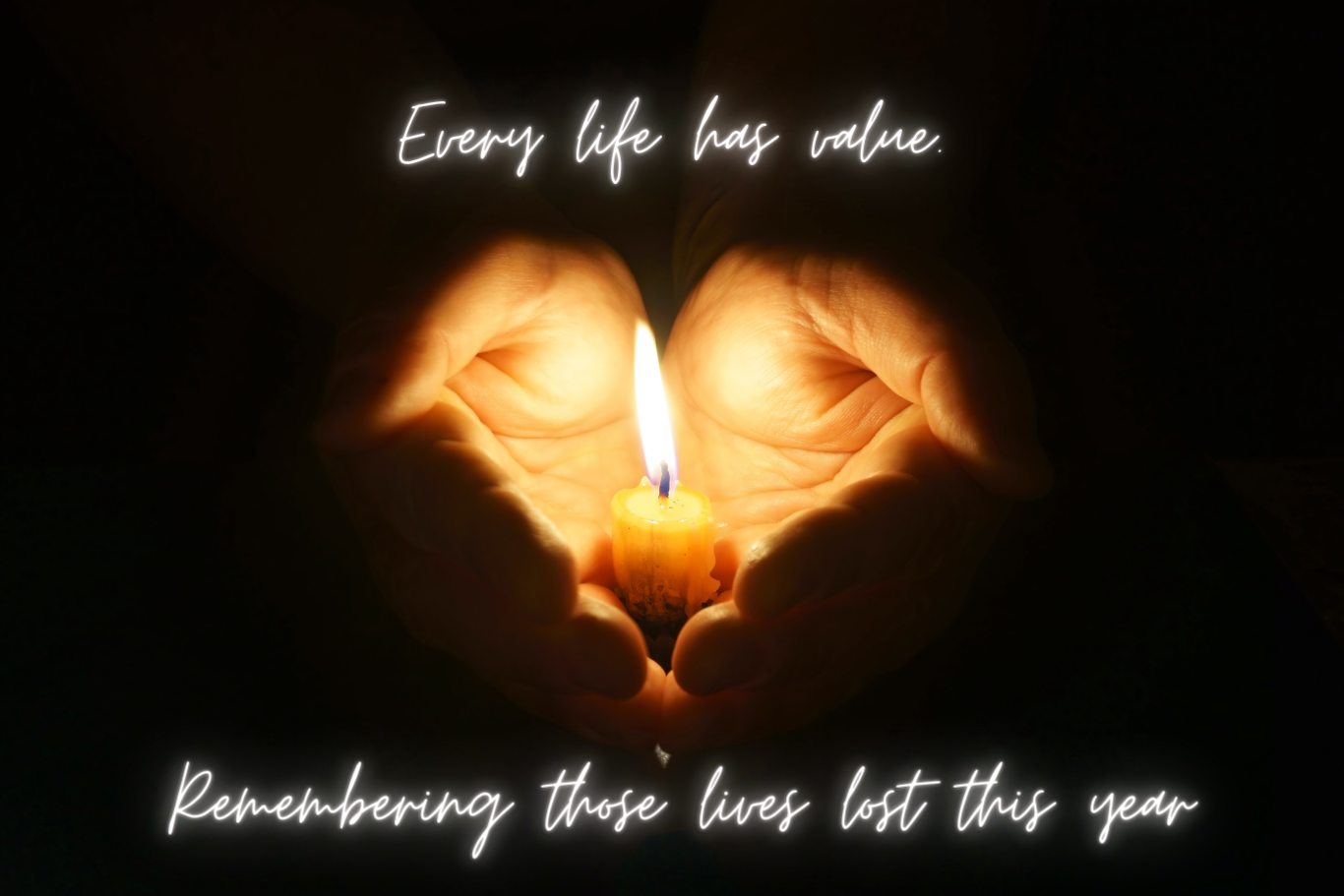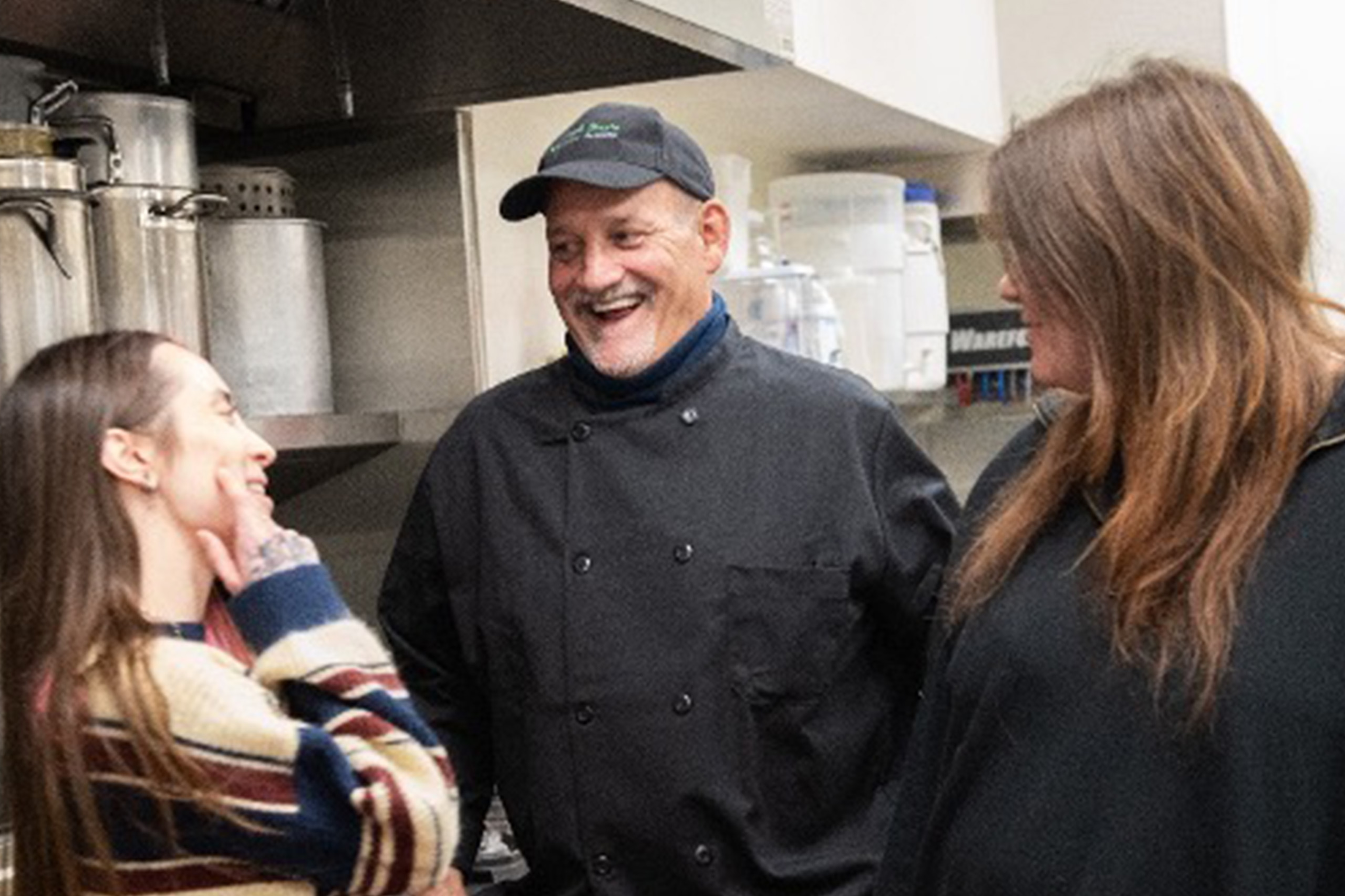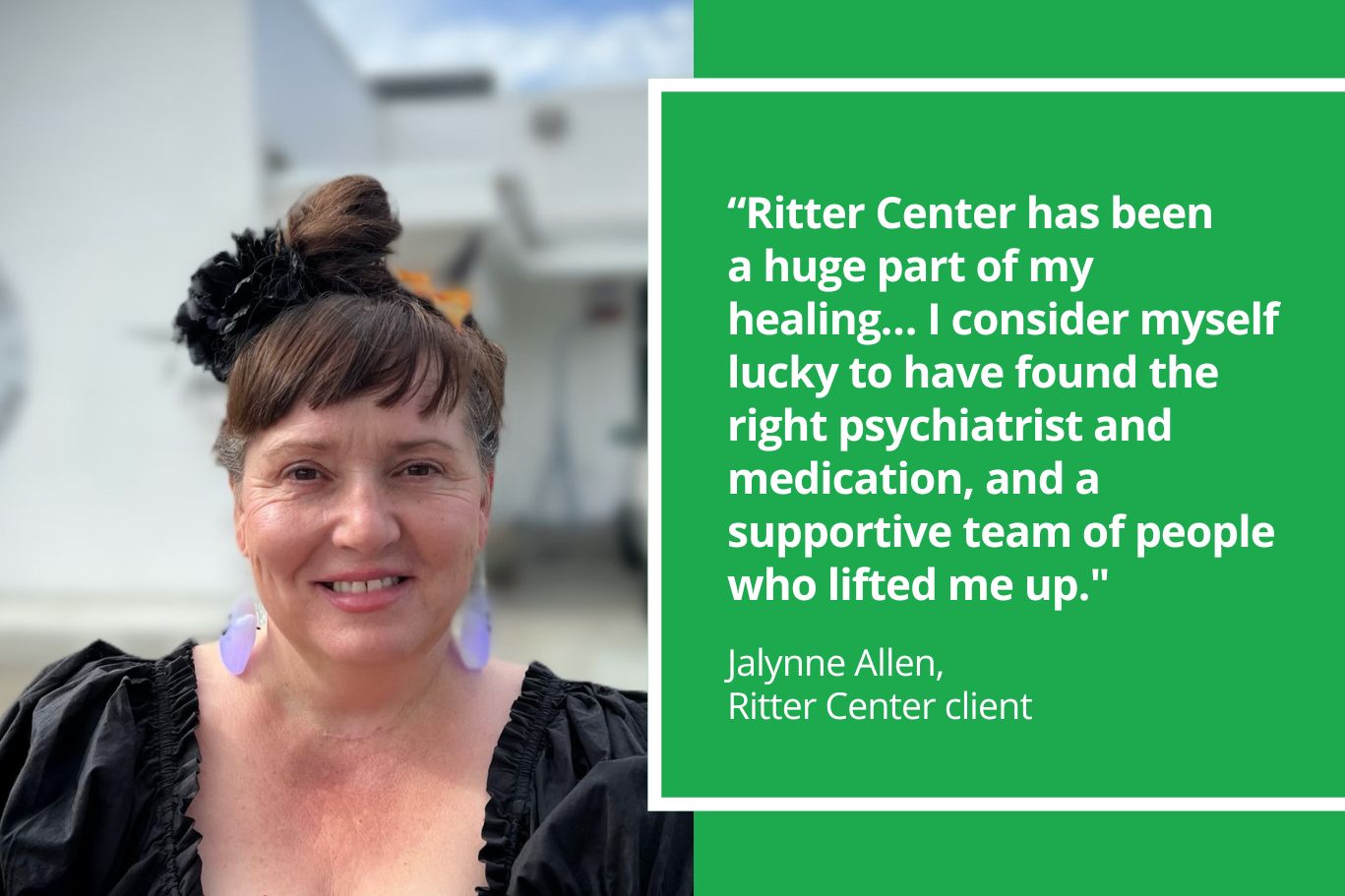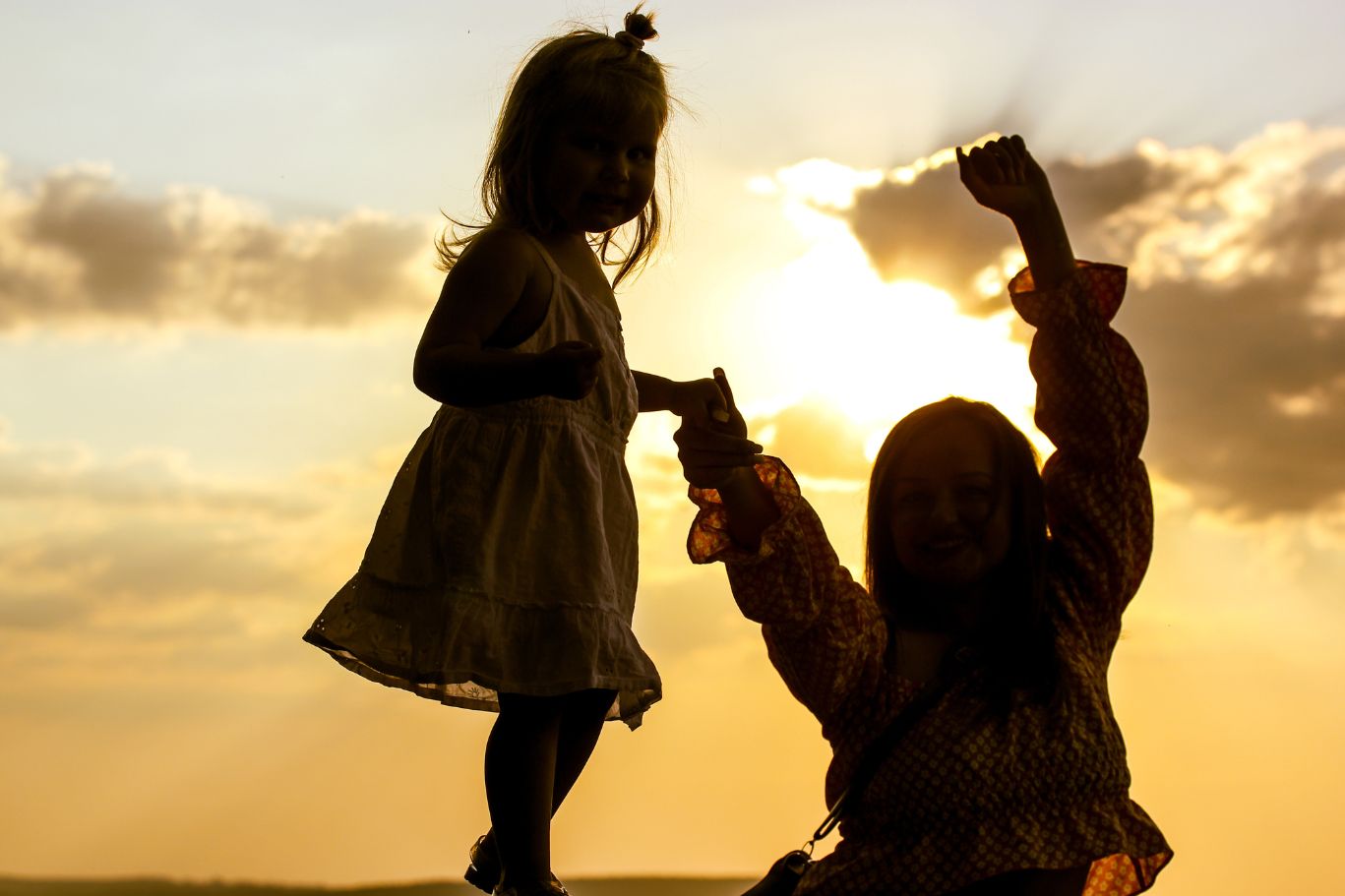
National Homeless Persons’ Memorial Day – December 21st
December 21st is National Homeless Persons’ Memorial Day. It’s poignantly held on Winter Solstice. For many cultures, this is both a celebration of the longest hours of darkness and the sun’s rebirth, and it is believed to hold a powerful energy for regeneration, renewal, and self-reflection. At Ritter Center, the longest night of the year gives us pause to reflect on the homeless lives lost this year. Every life has value.
Experiencing homelessness does not make a person less of a human or less worthy of love, support, and the chance to build a good life. We ask you to take a moment to pause and imagine the worst thing that you can possibly dream of happens to you. You lose your job, home, or loved one. Who do you call for support? What would happen if those people weren’t there for you? This existential dilemma happens to homeless people. Their resources are exhausted. There is no one left to call.
“People don’t become homeless when they run out of money. People become homeless when they run out of relationships.” – Ashley Hart McIntyre, Marin County’s Homelessness Policy Analyst
The restoration of relationships and community is key. People become homeless because they lose a support system. They lose relationships.
It is a systemic failure that we don’t build our culture around support. Instead, our societal culture is built around individuality. Through this faulty lens of individual exceptionalism, it limits our thinking as a community to merely what can I do for myself and only myself and reduces our empathic abilities. Society fuels the misconception that people who are poor or homeless are somehow less deserving, less human, and that people experiencing homelessness created their own demise. Another misconception centers on mental health as a cause of homelessness but it is far more complicated than that. Spend time on the streets and your mental health will decline.
“Thirty years of being homeless wasn’t what I had planned for myself.” – Ritter Center Client
The #1 resource people need is housing. Housing is healthcare. A chronically homeless person lives on average 28 years less than a housed individual. But we also need to provide emotional and mental health support for clients and the staff that work with clients. At Ritter Center, as part of our Whole Person Care approach, we believe that it’s vital to be present in ways that aren’t judgmental, seeking to change the person or to direct them. It is about following a person in a way that is compassionate and empathic, providing presence and meeting people where they are at that moment in time so they feel heard, seen, understood, cared for. Over time, together, we can help people living in poverty or experiencing homelessness, live healthier, longer, more hopeful lives.
If you or someone you know is experiencing homelessness and needs help, please contact Ritter Center: (415) 457-8182.
To support our programs that prevent and resolve homelessness, make a gift online today.




